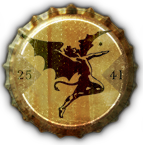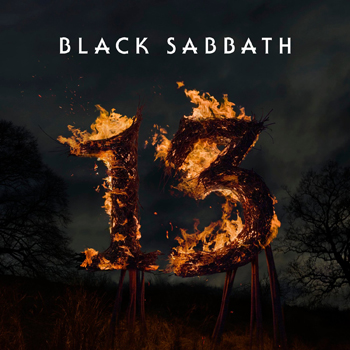An article from the June 13, 1992 issue of the Los Angeles Times Newspaper by Steve Hochman and Robert Hilburn
The hippest bands in hard rock?
Nirvana, Metallica, Soundgarden and Faith No More would certainly make the list. But whom would they elect as the hippest?
“I can’t deny Black Sabbath,” Nirvana’s Kurt Cobain told Option magazine last year, discussing his early musical heroes.
That’s right. Those ancient purveyors of Gothic metal mysticism–laughed at as bloated dinosaurs a decade ago–are turning up at the head of the list of influences on some of today’s most cutting-edge successes.
What a turnaround.
“It caught us by surprise,” said Geezer Butler, the original Sabbath bassist, sitting at a Warner Bros. Records office in Burbank with fellow founding member Tony Iommi. They were in town to promote the new–yes new–Black Sabbath album, “Dehumanizer,” which reunites the pair with singer Ronnie James Dio, who replaced co-founder Ozzy Osbourne in the late ’70s. (The album is due in stores June 30.)
“We were for so long written off as a second-rate Zeppelin-type band, and now so many are saying we influenced them,” said Butler, 42. “Now we know we’re not wasting our time.”
As his comment indicates, Sabbath–founded in 1968 by Birmingham, England, mates Butler, guitarist Iommi, Osbourne and drummer Bill Ward–had enough trouble being taken seriously in its prime during the early days of what is now called heavy metal.
By the time of punk and new wave in the late ’70s, Sabbath was subject to scorn and parody, like the Dickies’ speedy savaging of the song “Paranoid.” And there’s no doubt that Sabbath was one of the primary archetypes for Spinal Tap’s satire: The mustached Butler bears an eerie resemblance to his Tap counterpart Derek Smalls.
But a one-time reunion of the original lineup was asked to play at the Live Aid charity concert in 1985. And soon a whole generation of kids weaned on Sabbath began emerging with their own bands, and instead of parodies, young rockers began performing real tributes to Sabbath. This took a little getting used to.
“I remember Metallica opening a tour for me a good many years ago,” said Osbourne in a separate interview. “I would walk past their bus before shows and hear them playing old Sabbath songs, and I thought they were making fun of me. And they wouldn’t talk to me and always kept their distance, and I thought it was really weird. I asked their tour manager about it and said, ‘Is this their idea of a joke?’ And he said, ‘No, they think you’re . . . gods.’ ”
Iommi, 44, said he was alerted to the groundswell by Faith No More’s 1989 version of Sabbath’s 1972 chestnut “War Pigs.”
“On one visit to the U.S. I was given eight or 10 cassettes of people who had covered Sabbath stuff,” he said. “Some of these new kids are very good. It reminds me of us 20 years ago, with that attitude and approach to playing.”
And the time was right for a Sabbath revival–or as they prefer to view it, a continuation. Dio, who left in 1983 vowing never to return, was welcomed back into the fold and the new album was written and recorded. The renewed band contributed a song to the definitive piece of neo-retro metal-ness, the “Wayne’s World” soundtrack.
But not all parties are so thrilled about being named as influences by a new generation.
“Once you start being cited so much as an influence, it’s about time to go away and make room for the people citing you,” said Dio in a separate phone interview. “Perhaps (Iommi and Butler) are proud of it. They certainly were the innovators. . . . But keep your mouth shut about who you influenced and go out and prove what you can do. Who cares if Black Sabbath has been out there 50 years or 1,000 years? Go out and do it.”


Speak Your Mind